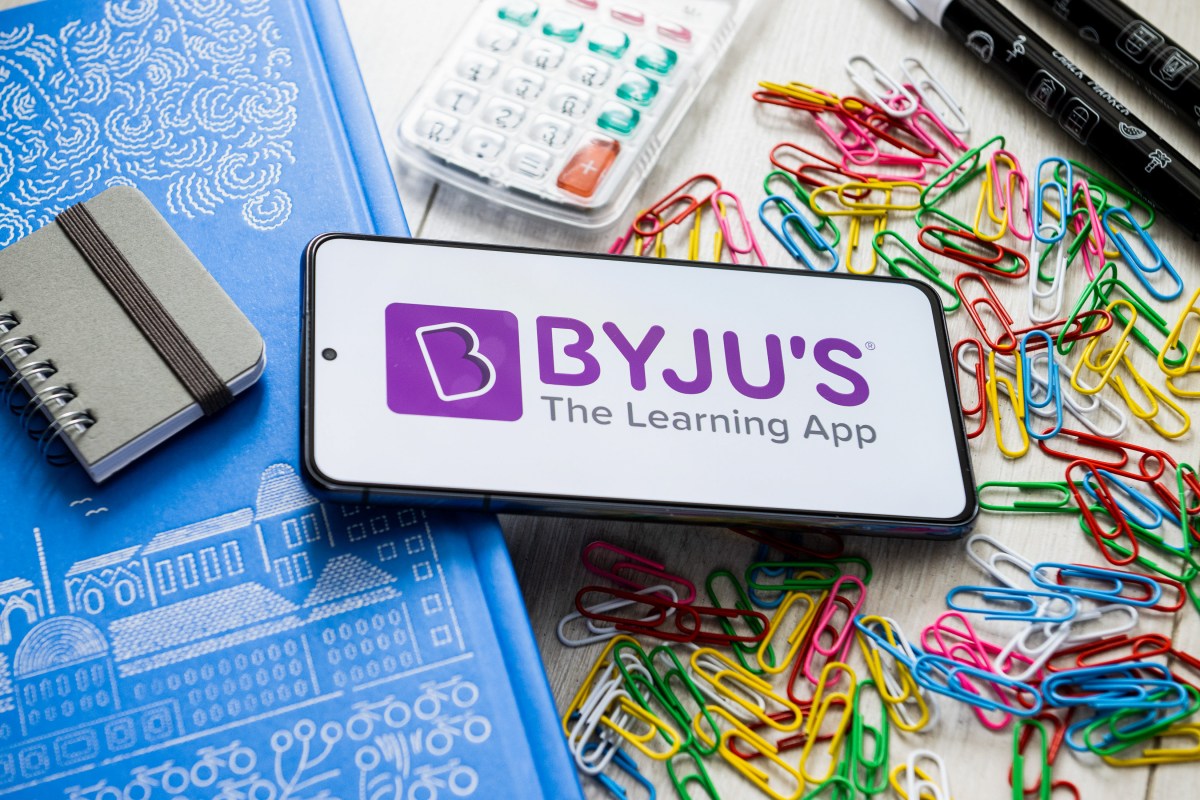Welcome back to TechCrunch’s Week in Review — TechCrunch’s newsletter recapping the week’s biggest news. Want it in your inbox every Saturday? Sign up here.
There’s more bad news for Byju’s. In a research note, HSBC estimates that the Indian edtech giant, once valued at $22 billion, is now worth nothing. The write-down in its estimation makes Byju’s one of the most spectacular startup slides in recent memory and follows a very rough year for what was India’s most valuable startup not long ago.
After raising $100 million, AI mortgage startup LoanSnap is facing an avalanche of lawsuits and has been evicted from its main office. At least seven creditors, including Wells Fargo, have collectively alleged that the company owes them more than $2 million. Employees who spoke to TechCrunch are now left worried about the company’s future.
An appeals court ruled that the VC film Fearless Fund cannot issue grants to Black women business owners, causing outrage among diversity advocates within the startup and venture ecosystem. Fearless Fund CEO Arian Simone released a statement saying the foundation was determined to continue fighting the lawsuit.
News
What to expect at WWDC 2024: Apple’s annual developer conference kicks off on June 10 at 10 a.m. PT. From iOS 18 to the macOS 15 debut and a whole lot of AI chatter, here’s what you can expect to see. Read More
Rivian’s path to survival: Rivian announced fully revamped versions of its first two consumer vehicles. For the first time since the company broke stealth in 2018, the EV maker’s immediate future is actually remarkably clear. Read More
Carta gets a big valuation cut: TechCrunch has learned that Carta is working on a secondary sale that would value the company at $2 billion, cutting its valuation drastically by $6.5 billion. Read More
Artists flee to Cara: An anti-AI social media app for creatives has skyrocketed to the top of the Apple App Store this week as artists become increasingly fed up with Meta’s AI training policies. Read More
Robinhood acquires Bitstamp: The stock-trading app is diving deeper into cryptocurrency with the acquisition of crypto exchange Bitstamp. The company expects the final transaction value to be around $200 million. Read More
Meet Apple’s recycling robots: TechCrunch paid a visit to Apple’s manufacturing facilities to learn more about the company’s efforts to build a better recycling robot in its bid to make its supply chain process carbon neutral by 2030. Read More
Can’t skip these ads: Instagram confirmed it is testing a new feature that will stop users from being able to browse through the social media platform until they’ve watched an unskippable ad in full, sparking criticism. Read More
“Don’t f— with toddler parents”: A Cameo fundraiser hosted by popular children’s YouTuber Ms. Rachel had a frustrating rollout as the company’s output policy gave fans credits instead of videos. Read More
Trump takes off on TikTok: Donald Trump has joined TikTok to better engage with young voters, signaling a strong reversal of opinion on the short-form video app he once tried to ban. Read More
Revel makes another pivot: After ditching its moped-sharing business for an all-Tesla, all-employee ride-hail service, Revel is laying off its 1,000+ staff drivers to embrace a gig worker model akin to that of Lyft and Uber. Read More
The walkie-talkie gets a revamp: French startup ten ten has gone viral for its walkie-talkie app that allows teens to send voice messages to their friends — even when their phone is locked. Read More
Analysis
Can generative AI save Siri?: Apple is expected to announce a partnership with OpenAI at WWDC and had larger goals of a deep integration of generative AI within Siri. As Brian Heater reports, Siri has fallen short of the revolution Apple promised 13 years ago — and at this stage, Apple can’t seem to beat OpenAI at its own game. Read More
Turns out, AI models have favorite numbers: Engineers at Gramener performed an informal experiment where they asked several major LLM chatbots to pick a random number between 0 and 100. But as Devin Coldewey notes, the results were not random. All three models had a “favorite” number and even demonstrated human-like bias toward other numbers. Read More
A unicorn-rich VC tells all: Over the course of his career in venture capital, Wesley Chan has invested in over 20 unicorns like Canva, Flexport and Robinhood. In a conversation with Christine Hall, Chan says he owes his success to his hard-working immigrant family and a Craigslist job washing lab beakers. Read More
Putting AI bias to the test: A recent study tested several open text-analyzing models to see how they’d respond to questions relating to LGBTQ+ rights, social welfare, surrogacy and more. They found that the models tended to answer questions inconsistently, which, they say, reflects biases embedded in the data used to train the models. Read More

